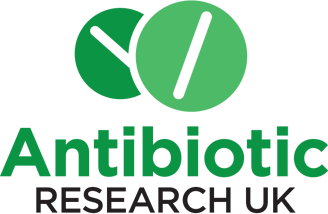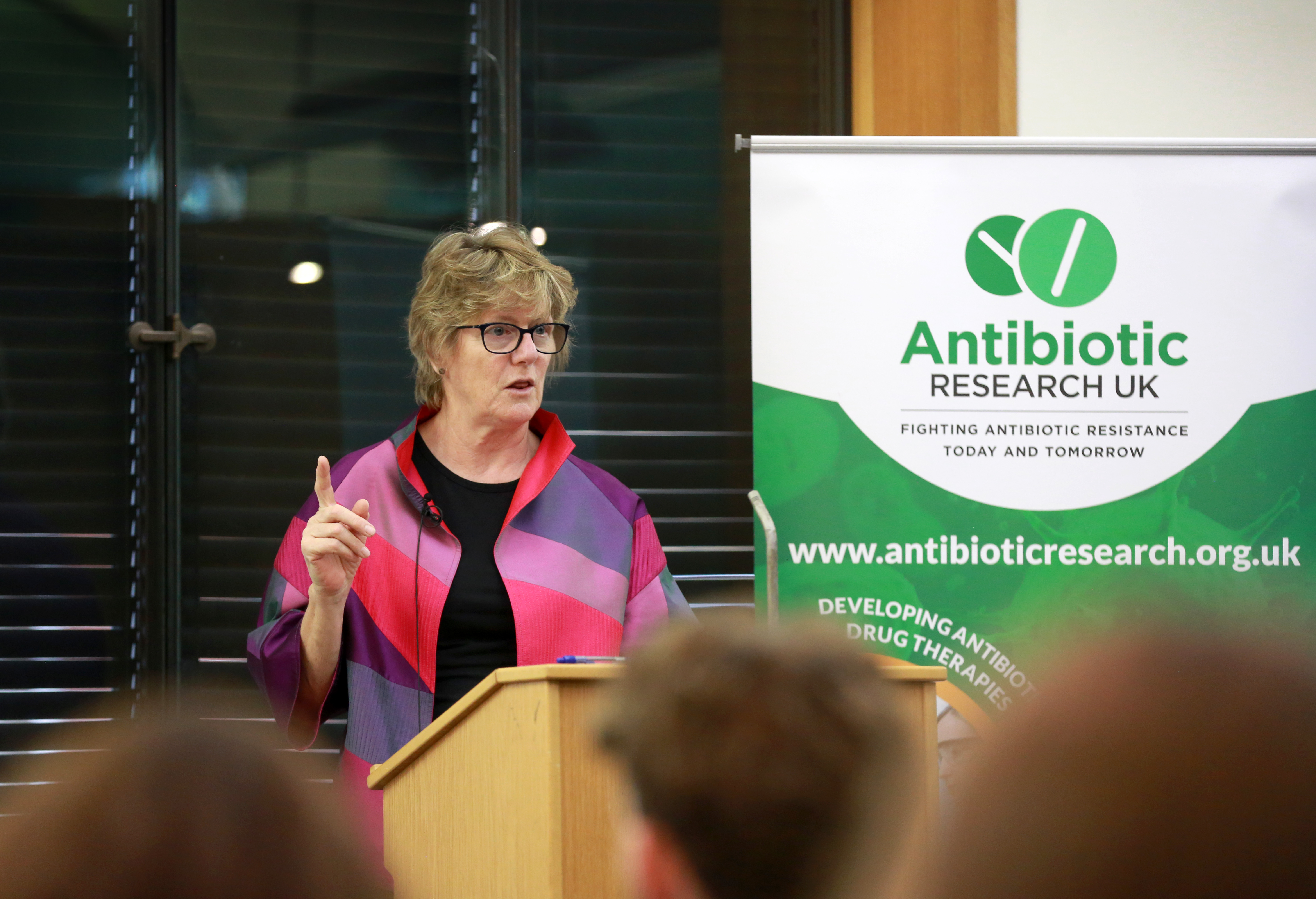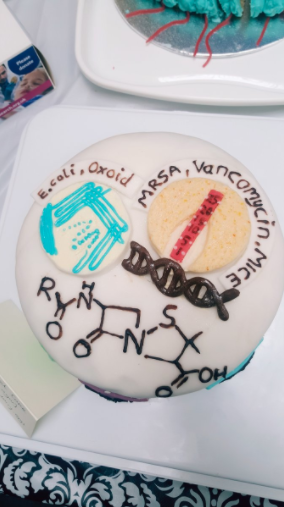2017 has been a busy year for Antibiotic Research UK. Antibiotic resistance is on the increase, but the charity is working hard to find solutions. Our research programmes are yielding positive results, and through 2017, we’ve uncovered potential new therapies for breaking antibiotic resistance that we will be exploring further in 2018.
We want to thank everyone who has supported us this year. The research we are undertaking simply wouldn’t be possible without your donations and assistance.
Below, we’ve provided a snapshot of what’s been going on this year.
Our research programmes have made significant progress this year. The charity’s initial research found some promising antibiotic combinations active against antibiotic resistant bacteria. With the charity’s second phase of research, we are exploring further the antibiotic combinations identified in our first phase of research, as well as exploring non-antibiotic drugs for their ability to break antibiotic resistance in Gram-negative bacteria (superbugs). Our second stage research is being conducted at LGC Ltd, Queen Mary’s, University of London and a new AMR facility at the University of Warwick. The latter research programme is a collaborative one with the Medicines Discovery Catapult who are funded by Innovate UK.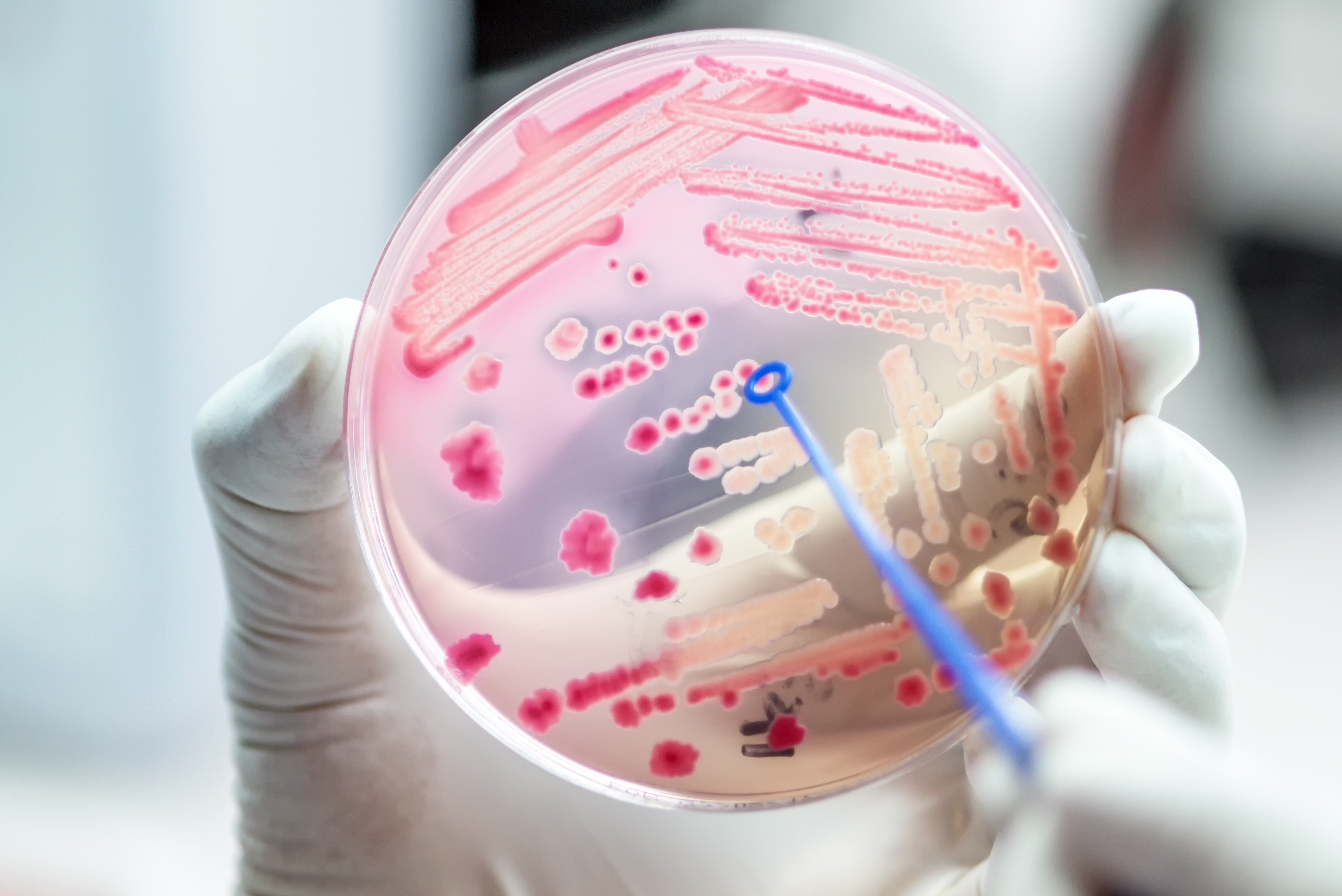
We have also been getting to work on solving travellers’ diarrhoea, which can sometimes be a life-threatening condition. Thanks to the generosity of Dr David Brown, a previous Trustee and Chair of our eminent Science Committee, we aim to trial a non-antibiotic therapy which David discovered to treat diarrhoea. The attraction of this potential treatment is that it could reduce antibiotic usage.
For the future, we are looking to raise £50,000 for a pilot clinical trial known as DIAMOND of a non-antibiotic triple combination of over the counter drugs to treat travellers’ diarrhoea. This research will be conducted in collaboration with the University of Southampton and the University of Hong Kong. If successful, the results of this trial will be published so that others can benefit from our findings.
As the problem of antibiotic resistance worsens, stories related to AMR have been hitting newspapers with increasing frequency in 2017. In February, the World Health Organisation (WHO) published a list of the twelve drug resistant bacteria which they claim pose the greatest threat to human health. In March, the Lancet reported that drug resistance threatens to overturn decades of progress on tuberculosis.

Emily Morris, ambassador for Antibiotic Research UK, who suffers from a chronic antibiotic resistant infection
In July, reports of increases in untreatable gonorrhoea were splashed across the newspapers, and in the same month, a study from the BMJ suggested that it was incorrect that patients must finish their course of antibiotics. The charity disputed this recommendation stating that the number of clinical trials cited were insufficient to make this recommendation and urging that more extensive clinical studies should be undertaken. This month, a new national health campaign from Public Health England has been introduced asking patients not to request antibiotics from their GPs, while the WHO has warned that farmers must stop antibiotic use in animals.
As the year has unfolded, Antibiotic Research UK has found itself at the centre of the discussion on antimicrobial resistance. Many interviews and news-stories involving the charity have been broadcast on television and radio, and articles referencing ANTRUK have been penned in newspapers and magazines across the country. Representatives from the charity have made appearances on programs such as BBC Radio, TalkRadio, Channel 5 News, the BBC’s Victoria Derbyshire programme, ITV’s Good Morning Britain, and Sky News.
In October of this year, we held our Annual Lecture which was given by Dame Sally Davies, the Chief Medical Officer. Her talk in the Attlee Room of Portcullis House, Westminster, focused on her journey from her first publication on AMR in 2011, to the current state play around antibiotic resistance. The Chief Medical Officer used the event to call on politicians and the public to take tangible action against AMR, and to commend the work of Antibiotic Research UK. “I want to face my children and grandchildren to be able to say ‘we had a crack at this’,” explained Dame Sally.
The 2017 Annual Lecture was host to speeches from others within the charity, as well as a VIDEO from the well known Times journalist David Aaronovitch. David expressed the importance of antibiotics for future generations, and also spoke of the role antibiotics had played in his own life: alluding to his grandmother who had died from sepsis, his talk explored how his own life was saved by antibiotics after a routine hospital operation went badly wrong.
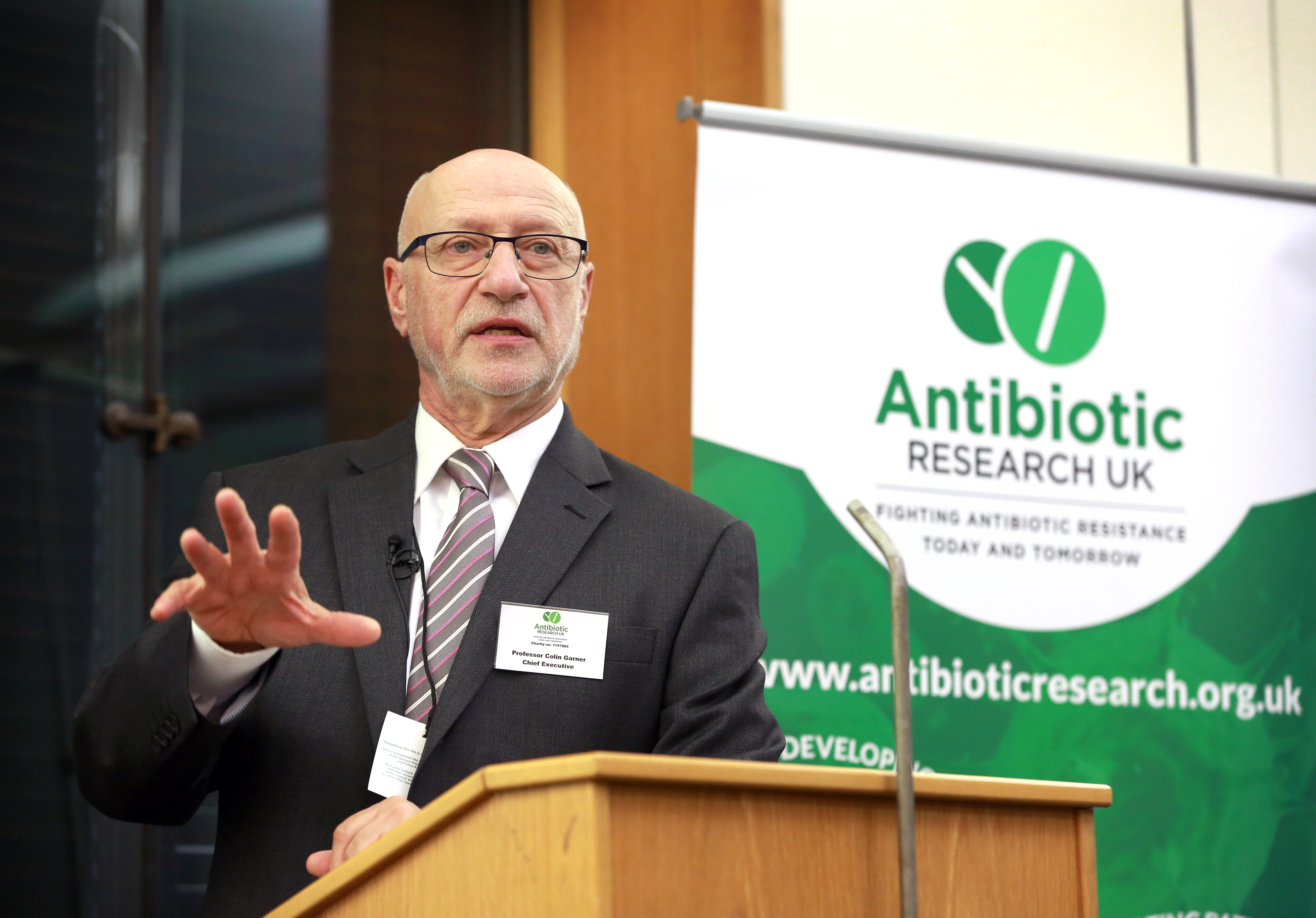 The event was also an opportunity to reveal the charity’s five-point action plan. Announced by the charity’s Chief Executive, Professor Colin Garner, the plan sets out five key measures that the UK should be taking in order to tackle antibiotic resistance.
The event was also an opportunity to reveal the charity’s five-point action plan. Announced by the charity’s Chief Executive, Professor Colin Garner, the plan sets out five key measures that the UK should be taking in order to tackle antibiotic resistance.
- A call to form a GRAND ALLIANCE of the UK government, the pharmaceutical industry, collective medical research charities, academics and the public to produce a UK focussed GRAND STRATEGIC PLAN
- A proposal that regional Antibiotic Resistance Registers be created in the same way that we have regional cancer registers
- The government to introduce a re-imbursement model NOW for pharmaceutical companies so that they recommence their antibiotic drug development programmes.
- That the Third Sector must be part of the resistance solution and must be allowed to apply for government funding.
- The creation of a £100 million UK Antibiotic Discovery Fund with monies coming from the government, pharma and medical charities. The pharma money could be a quid pro quo for agreeing to a reimbursement model.
Fundraising
2017 has also been a year of fundraising. Fundraising events and sponsored activities have been held across the country by our supporters, and we are expecting to have raised £300,000 in 2017.
In July, ANTRUK supporters Loraine and Darren raised over £230 for the charity by completing the 22-mile Bridgenorth Walk, while in the same month, Fiona McDonald completed a hill run in Scotland and raised over £700 for the charity. Antibiotic Research UK has also had the support of a number of businesses. In May, the Ambiente Tapas Restaurant in York raised nearly £1000, while in August, Beverley Racecourse held a charity dog race, named the “Bark de Triomphe”, which raised £30,000.
Throughout 2017, Antibiotic Research UK has also received the support of organisations such as PiR Resourcing, as well as generous donations from well-known charitable trusts that support medical research. We want to take this opportunity to thank everyone who has supported ANTRUK in 2017. Antibiotic Research UK relies heavily on support from the public and charitable trusts, and so we are extremely grateful for all your hard work and your generosity!
Our main fundraising event in 2017 was our annual Great British Tea Party. This was the Tea Party’s most successful year yet, with more Tea Parties held than ever before. The fundraising week, timed to coincide with World Antibiotic Awareness Week, kept everyone busy with baking cakes, making pots of tea, and generally having fun. Tea Parties were held all across the country – in schools, in workplaces, and in homes. Money is still coming in, but Tea Parties have already raised thousands of pounds which will go towards the charity’s research programmes. Once again, we want to say a huge thank you to everyone who has held a Tea Party this year – we couldn’t have done it without you. 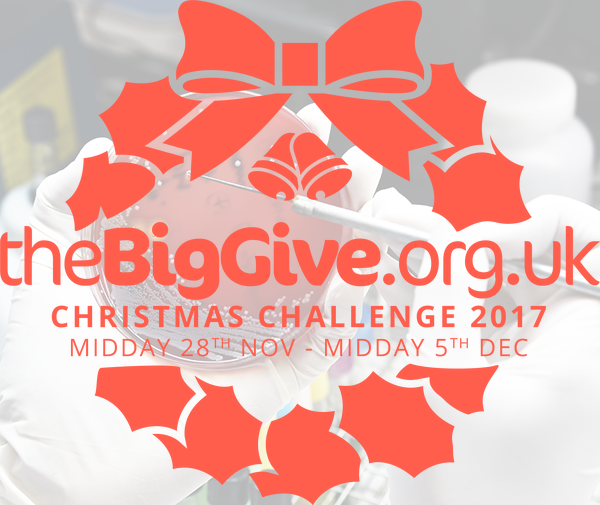
We are now in the midst of our next fundraising campaign, the Big Give Christmas Challenge. Donations to Antibiotic Research UK between midday (GMT) on 28th November and midday on 5th December 2017 will be doubled. Click here to be taken directly to the donation page.
This is what we have achieved in 2017:
- Up to a million different combinations of antibiotics and marketed drugs have been tested and a number have been found which can break superbug resistance in test tube studies.
- More extensive studies are now being undertaken of the successful combinations to prove the validity of the initial results.
- A collaborative agreement with the Medicines Discovery Catapult (MDC), part of Innovate UK, a quasi-government partner and ourselves has been signed. Research will be undertaken at a new MDC centre recently opened at the University of Warwick where new testing methods will be examined as well as further combination work.
- An Agreement has been signed with Queen Mary’s, University of London to examine further antibiotic/drug combinations.
- Provided top up funding of two PhD studentships to study aspects of antibiotic resistance including societal and economic aspects
- During the year, we have started a most exciting project in collaboration with the University of Southampton developing a way to overcome Travellers’ Diarrhoea (DIAMOND) by a combination of human food products (nutraceuticals). If successful, we could find a non-antibiotic alternative for diarrhoea treatment therefore reducing the use of antibiotics.
- Our education work is being overseen by Professor Christine Bond, Professor of Primary Health at Aberdeen University and ANTRUK Trustee and is making significant developments. We have formulated an Educational Programme targeting high users of antibiotics and launched a Five-point Plan including seeking collaboration from other medical charities to fight antibiotic resistance supported by Dame Sally Davies Chief Medical Officer. Please visit our website at https://www.antibioticresearch.org.uk/antibiotic-research-uk-announces-five-point-action-plan-tackle-amr/ to read more.
- We have had significant coverage in the press, raising awareness of the impending health crisis of antibiotic resistance. Notably just last month following Dame Sally Davies Lecture at our AGM and her announcement in Berlin about the UK’s renewed commitment to tackling drug-resistant infections. Amongst many other interviews:
- Professor Garner appeared on: Sky News, BBC Radio 5 Live, TRT World, TalkRadio and numerous local radkio shows;
- Professor Dowson spoke on Channel 5 News and BBC Radio London;
- Emily Morris (ANTRUK Ambassador & AMR sufferer) was interviewed on the BBC’s Victoria Derbyshire programme, ITV’s Good Morning Britain, and Sky News.
Our achievements to date have been financed from nearly £700,000 of charitable funding, £286,000 of which has been raised over the past 12 months. You can view our 2017 Annual Report and Accounts here. In 2018, we need to raise a further £510,000 to fund our goals. Provided we are successful, the Trustees and our highly-respected Science Committee and Education Committee members are confident that our charity will make a difference for the benefit of humanity.
In all, 2017 has been a fantastic year for the charity, and we are looking forward to making 2018 just as successful, by continuing to raise awareness of antimicrobial resistance among the public, as well as continuing our research programmes to develop new antibiotic therapies to combat the threat of AMR. We will also be putting further resources into developing our public education, patient support and campaigning activities.
You can support ANTRUK by donating, fundraising, volunteering, or by becoming a member.
